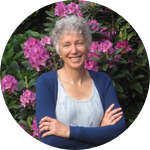About This Project
Ask the Scientists
Join The DiscussionWhat is the context of this research?
What’s urban horticulture, you might ask? Simply put, it’s the applied science behind selecting, installing and managing plants in human environments. It’s not production agriculture. And since it’s not production agriculture, it’s not eligible for USDA funding. The science of urban horticulture and arboriculture is relatively young, compared to the centuries of research we have on agricultural crops. Everyone loves gardening, but no research agency wants to fund the science behind it.
What is the significance of this project?
Those of us involved in urban horticulture do what we do because we love it. We love discovering information that will help home gardeners and other interested nonscientists make scientifically sound decisions when it comes to applying chemicals, or buying nonnative plants, or planting acres of lawn. We educate people to approach gardens and landscapes in a holistic, rational way, avoiding the pseudosciences that dot the landscape (pun intended).
What are the goals of the project?
Three years ago, four of us academic types began a blog called The Garden Professors (link below). We’re the only science based garden blog out there, and we have followers from 167 different countries. We can run the blog on a shoestring (i.e. no money at all), but we can’t do the research that fuels many of our posts that way. We’d love a way to raise money to test garden products and practices, and our readers would love the results.
We will test some popular fertilizer products for their effects on vegetable health and growth of tomato and lettuce. These fertilizer products include Miraclegro, Superthrive, and Dr. Earth's Life fertilizer. Seeds will be sown in June and watered as necessary throughout the experiment, which will last for 3 months.
Three months after germination we will assess fresh weight, and dry weight of vegetative plant material, # of tomatoes produced, and weight of tomatoes produced for each treatment. We will also continually monitor the plants for any disease throughout the experiment.
This test will be repeated in 4 locations across the US including MN, VA, WA and MI.
Budget
coming soon!
Meet the Team
Team Bio
We are four university professors dedicated to translating scientific information for your gardens and landscapes. Be informed and entertained!Dr. Bert Cregg, Associate Professor, Michigan State University
Dr. Holly Scoggins, Associate Professor, Virginia Tech
Dr. Jeff Gillman, Associate Professor, University of Minnesota
Dr. Linda Chalker-Scott, Associate Professor, Washington State University
Linda Chalker-Scott
Linda Chalker-Scott, PhD: WSU Associate Professor (Horticulture) and Extension Specialist (Urban Horticulture). Linda received her PhD in Horticulture (with minors in Biochemistry and Botany) from Oregon State University in 1988, focusing on environmental stress physiology of woody plants. In addition to her academic credentials, she is also an ISA certified arborist and an ASCA consulting arborist.
Linda has been developing and promoting science-based practices for the management of urban landscapes and home gardens since 1997. She publishes widely on this topic, from popular books and magazine articles to peer-reviewed Extension publications and scientific journal articles. In particular, she has focused on using arborist wood chip mulches as an effective way to suppress weeds, enhance plant growth, and improve soil health.
As an Extension Specialist, Linda no longer teaches university courses but instead has an educational outreach program that includes homeowners, Master Gardeners, landscape professionals, restoration ecologists, and landscape architects. She is also one of the founding Garden Professors, a group of university faculty who provide science-based information for gardeners through their blog and Facebook pages.
Lab Notes
Nothing posted yet.
Project Backers
- 1Backers
- 4%Funded
- $40Total Donations
- $40.00Average Donation
